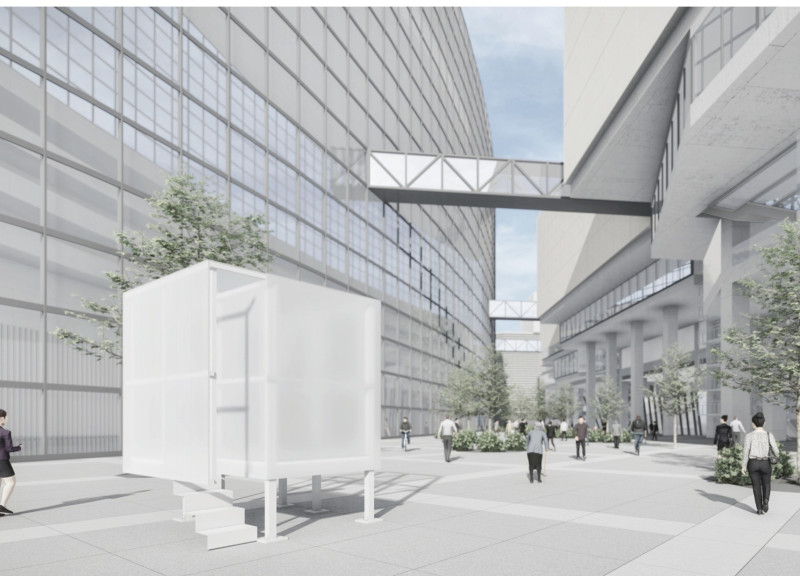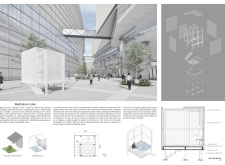5 key facts about this project
The Meditation Cube is located in the busy urban setting of Tokyo, Japan. It creates a quiet space for individuals to meditate and reflect, contrasting with the fast pace of city life. The design draws on traditional Japanese practices, specifically the ‘Engawa,’ providing a dedicated area that invites users to step away from the demands of their daily routines.
Design Concept
The structure is small and translucent, allowing natural light to shine through while ensuring privacy. The translucent polycarbonate walls are essential for creating a bright atmosphere that separates users from the outside world. This design aspect is a modern take on the historical significance of the 'Engawa,' where people would sit and enjoy moments of calm while connecting with nature.
Spatial Configuration
Inside the Meditation Cube, three main elements are present: the walls, a reflective metal floor, and a chair. The walls allow sunlight to filter in, making the space feel airy and welcoming while keeping external distractions at bay. The reflective metal floor enhances the experience by mirroring the sky, creating a feeling of openness and connection with the outdoor environment, which is vital for a meditative experience.
User Experience
The chair is placed to be the center of the experience, inviting users to sit and reflect. It offers comfort while encouraging introspection. By acting as a bridge between the inside and the outside, the chair reinforces the connection between the user and their surroundings, embodying the essence of the 'Engawa.'
Urban Integration
Positioned in urban squares, often seen as underutilized spaces, the Meditation Cube introduces an element of mindfulness to these areas. By placing the cube in high-traffic locations, it changes how public spaces are used, urging people to pause and find stillness in the midst of urban life.
The design culminates in a thoughtful interaction, where users can enjoy a reflective surface that echoes the sky, creating a bond between the peaceful interior of the cube and the lively city beyond.























